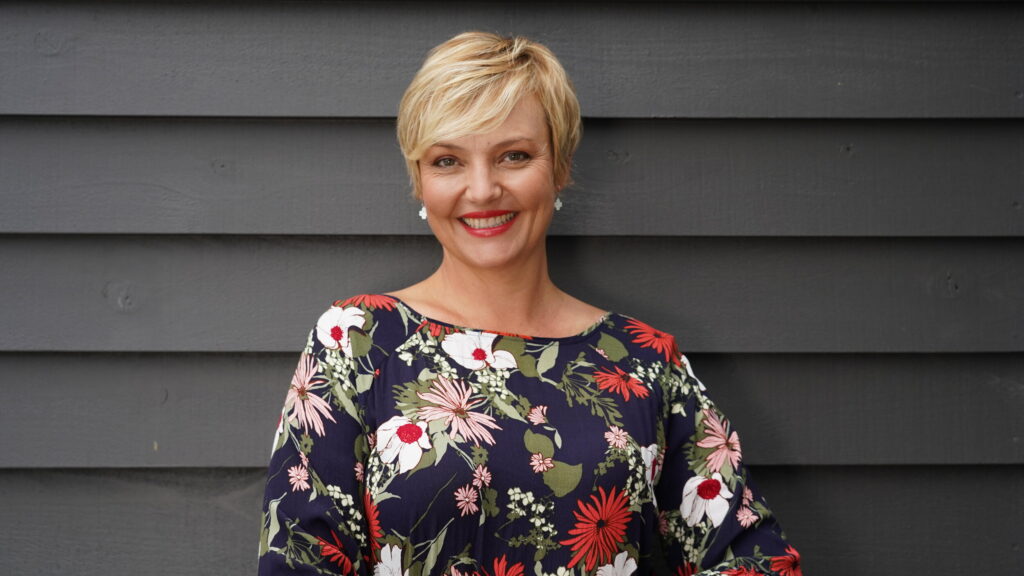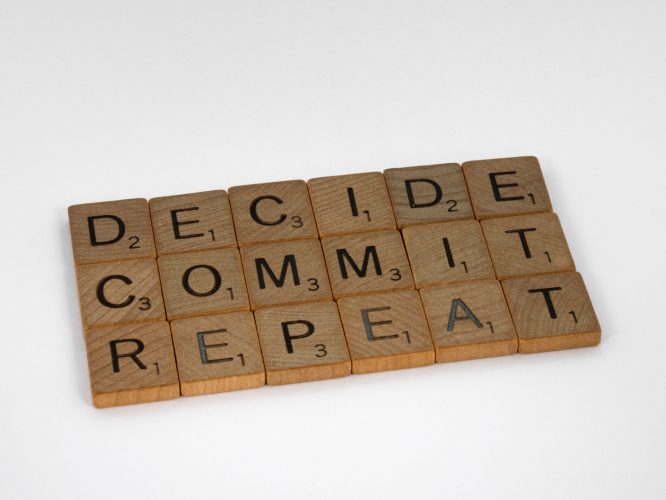Becoming more decisive is a valuable skill that can lead to more effective decision-making and increased confidence in various aspects of your life. Becoming more decisive is a gradual process, and it’s okay to start small. I asked industry leaders from different walks of life how one can develop the skill of making decisions with greater ease and confidence.
1. Practise ‘Heartfulness’
Chairman & CEO at MSys Technologies, Venture & Angel Investor
Decision making as a leader should be very “heartful” as sometimes the outcomes of such actions have a huge impact on the livelihoods of people employed with you. I strive to practise this Heartfulness by jolting my system through a run/ rigorous outdoor game and then calm my nerves with a cold shower followed by Heartfulness relaxation and meditation. This enables my intuition which gives me a new outlook and an advantage to envision the possibilities of the decision beyond the obvious.


1. Practise ‘Heartfulness’
Chairman & CEO at MSys Technologies, Venture & Angel Investor
Decision making as a leader should be very “heartful” as sometimes the outcomes of such actions have a huge impact on the livelihoods of people employed with you. I strive to practise this Heartfulness by jolting my system through a run/ rigorous outdoor game and then calm my nerves with a cold shower followed by Heartfulness relaxation and meditation. This enables my intuition which gives me a new outlook and an advantage to envision the possibilities of the decision beyond the obvious.

2. Overprepare beforehand
Bestselling Author and Motivational Speaker
Overprepare then move speedily. The majority (of people) walk into a meeting or deal flying by the seat of their pants. Masters of business are utterly overprepared. They crunch the data, go granular on the subject and make great notes. Then, once armed with intelligence and confidence on the issue, they decide quickly, understanding that too much ruminating causes opportunities to find another beneficiary.

2. Overprepare beforehand
Bestselling Author and Motivational Speaker
Overprepare then move speedily. The majority (of people) walk into a meeting or deal flying by the seat of their pants. Masters of business are utterly overprepared. They crunch the data, go granular on the subject and make great notes. Then, once armed with intelligence and confidence on the issue, they decide quickly, understanding that too much ruminating causes opportunities to find another beneficiary.
3. Have a crisis plan ready
Co-host of It’s PR Darlings podcast
Consult your crisis management plan consistently. Prioritising a well-crafted crisis management plan should be a top agenda item. Operating without a plan leaves you scrambling, and effective decisions are rarely made in haste. Furthermore, your plan should undergo regular updates to ensure that, when needed, you possess accurate data, guaranteeing comprehensive readiness. Even if your present predicament doesn’t precisely align with the scenarios in your crisis plan, a solid foundation allows you to adapt and pivot as necessary.


3. Have a crisis plan ready
Co-host of It’s PR Darlings podcast
Consult your crisis management plan consistently. Prioritising a well-crafted crisis management plan should be a top agenda item. Operating without a plan leaves you scrambling, and effective decisions are rarely made in haste. Furthermore, your plan should undergo regular updates to ensure that, when needed, you possess accurate data, guaranteeing comprehensive readiness. Even if your present predicament doesn’t precisely align with the scenarios in your crisis plan, a solid foundation allows you to adapt and pivot as necessary.
4. Merge analysis and intuition
Founder and CEO of AI-driven firm Rivi
In leading my firm, I merge careful analysis with experienced intuition, integrating diverse perspectives for decision-making. This balance of quick action with careful deliberation, and logic with creativity, paves the way for innovative solutions in building our human-centric AI products.


4. Merge analysis and intuition
Founder and CEO of AI-driven firm Rivi
In leading my firm, I merge careful analysis with experienced intuition, integrating diverse perspectives for decision-making. This balance of quick action with careful deliberation, and logic with creativity, paves the way for innovative solutions in building our human-centric AI products.
5. Gauge the impact
Co-Founder of e-commerce firm Industrybuying
I make business execution decisions with one overarching principle – how does this have an impact on my business metrics and strategy execution, both near term and long term? If something is not having a meaningful impact on the business, it needs to be deprioritised and the decision should be a no. For hiring and other people’s decisions, the line is softer – people’s decisions are made equally from the gut as well as from clear measurability. Sometimes taking a bet on the right person really pays off.


5. Gauge the impact
Co-Founder of e-commerce firm Industrybuying
I make business execution decisions with one overarching principle – how does this have an impact on my business metrics and strategy execution, both near term and long term? If something is not having a meaningful impact on the business, it needs to be deprioritised and the decision should be a no. For hiring and other people’s decisions, the line is softer – people’s decisions are made equally from the gut as well as from clear measurability. Sometimes taking a bet on the right person really pays off.


Tips from Sheri Van Dijk
In my podcast episode ‘From Doubt to Clarity’, I had the chance to quiz mental health expert Sheri Van Dijk about how Dialectical Behavior Therapy (DBT) can be beneficial to many who are struggling with processing their emotions and making decisions. She talked about a few skills and techniques that help:
- Forward bend: If you know yoga, you know the forward bend already. But if you don’t know yoga, don’t worry. The forward bend is just bending over as though you’re trying to touch your toes. When we are in a position where our head is below our heart, it actually activates a system in our body called the parasympathetic nervous system. It’s not a quick fix, but it certainly helps you to feel calmer for a short period of time. It opens up a bit of a window where we’re more able to access a wise-minded state.
- Tipping skill: If someone has anorexia or bulimia, low blood pressure, or if they are taking a beta blocker medicine, or get uncomfortable underwater, they should not try this. I tell my clients to fill a plugged sink (or bucket) with ice-cold water. While holding your breath, plunge your face into the water for 30 seconds. Take your head out of the water and repeat the dunking process again. This tipping of the face activates a different system in the body called the mammalian dive reflex. It redirects blood flow in our body, from our extremities to our heart and our head and helps to quickly re-regulate emotions.
- Radical acceptance: Radical acceptance is about acknowledging reality as it is. A lot of people get a little confused about the term 'acceptance'. When we’re talking about acceptance from this perspective, we don’t mean that we approve of or that we like the situation, or that we’re okay with it as it is. We mean simply that we are acknowledging reality as it is. It helps us to re-regulate emotions. When we are fighting a reality which is the opposite of accepting a reality, we are essentially triggering more emotional pain for ourselves. Gradually, as we are able to accept reality, our emotional suffering reduces. This allows us to be in a better position to make decisions from a wise-minded place.


Tips from Sheri Van Dijk
In my podcast episode ‘From Doubt to Clarity’, I had the chance to quiz mental health expert Sheri Van Dijk about how Dialectical Behavior Therapy (DBT) can be beneficial to many who are struggling with processing their emotions and making decisions. She talked about a few skills and techniques that help:
- Forward bend: If you know yoga, you know the forward bend already. But if you don’t know yoga, don’t worry. The forward bend is just bending over as though you’re trying to touch your toes. When we are in a position where our head is below our heart, it actually activates a system in our body called the parasympathetic nervous system. It’s not a quick fix, but it certainly helps you to feel calmer for a short period of time. It opens up a bit of a window where we’re more able to access a wise-minded state.
- Tipping skill: If someone has anorexia or bulimia, low blood pressure, or if they are taking a beta blocker medicine, or get uncomfortable underwater, they should not try this. I tell my clients to fill a plugged sink (or bucket) with ice-cold water. While holding your breath, plunge your face into the water for 30 seconds. Take your head out of the water and repeat the dunking process again. This tipping of the face activates a different system in the body called the mammalian dive reflex. It redirects blood flow in our body, from our extremities to our heart and our head and helps to quickly re-regulate emotions.
- Radical acceptance: Radical acceptance is about acknowledging reality as it is. A lot of people get a little confused about the term 'acceptance'. When we’re talking about acceptance from this perspective, we don’t mean that we approve of or that we like the situation, or that we’re okay with it as it is. We mean simply that we are acknowledging reality as it is. It helps us to re-regulate emotions. When we are fighting a reality which is the opposite of accepting a reality, we are essentially triggering more emotional pain for ourselves. Gradually, as we are able to accept reality, our emotional suffering reduces. This allows us to be in a better position to make decisions from a wise-minded place.



